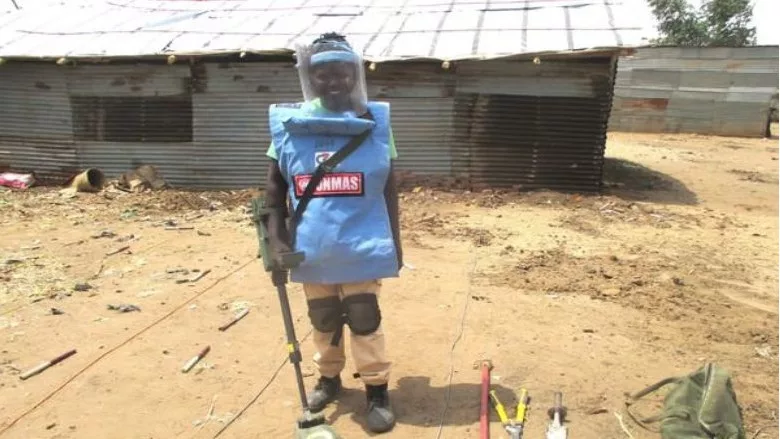Removing landmines improves security in South Sudan

Image via G4S
More than than 8,000 cluster munitions have been removed from South Sudan over the last 17 years opening the land up for agriculture and other uses.
G4S’s Ordnance Management company, in partnership with the United Nations Mine Action Service (UNMAS), is removing landmines and other explosive hazards, such as cluster munitions, in South Sudan.
Since 2006, G4S has cleared a billion square meters of land in South Sudan in support of UNMAS activities. This includes roads, arable land and infrastructure, which in turn has been released back to communities by the National Mine Action Authority (NMAA).
More than 8,226 cluster munitions, 10,381 anti-personnel mines and 1,273 anti-tank mines have been removed. When this tally is combined with unexploded ordnance and small arms ammunition disposed of, they have safely removed and destroyed 237,996 explosive hazards from South Sudan.
Recruitment and training
Most Ordnance Management employees are made up of former service members and trained in explosive ordnance disposal. In addition to the mental demands of the job, the high temperatures, armed robbery, malaria, tough terrain, snakes and scorpions are also challenging.
Teams need to be self-sufficient as they often travel to remote locations, which can take days to get to in 4x4 vehicles. Once there, teams are typically based for two or more months.
All staff are required to undergo training and accreditation. First, they complete the G4S OM country specific management training and are required to undergo and pass an accreditation with the current client. They must have also worked in South Sudan for at least five years to ensure they have a good understanding of the terrain, history and social and cultural nuances.
Looking for a reprint of this article?
From high-res PDFs to custom plaques, order your copy today!






